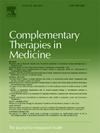从农场到床边:医用大麻在全球健康中的潜力
IF 3.5
3区 医学
Q1 INTEGRATIVE & COMPLEMENTARY MEDICINE
引用次数: 0
摘要
日益严重的阿片类药物危机和持续存在的全球健康差距强调了对替代治疗策略的迫切需要。大麻具有悠久的历史用途和最近的立法发展,为解决这些挑战提供了一个潜在的重要途径。本综述从历史民族药理学数据和当代科学讨论中考察了药用大麻的发展前景。方法本综述综合了历史民族植物学记录、同行评议研究和最近全球卫生事件的结果的证据。这些活动促进了不同利益相关者之间的讨论,包括医疗保健专业人员、政策制定者、研究人员、行业代表、农民和患者倡导者。分析了来自美国和非洲的案例研究和成功模式,包括最近FDA批准的用于胰腺癌的药用大麻衍生物的首次人体临床试验。成功的模式包括促进利益相关者参与的协作平台,例如非洲农民和生物技术公司之间的伙伴关系,以使种植标准化。成功的模型展示了在不同医疗保健环境中适应和扩展的潜力。FDA的试验批准体现了临床转化的进步。然而,差距仍然存在,非洲境内的患者在获得医用大麻认证方面面临系统性障碍,惩罚性阿片类药物停药率较高。结论药用大麻为减少阿片类药物相关死亡率和解决医疗不公平问题提供了一个复杂但有希望的解决方案。实施CORE(护理、外联、研究、教育)等战略框架对于开发安全、高质量、以证据为基础的大麻产品至关重要。通过促进合作和解决现有障碍,可以利用药用大麻的治疗潜力,减轻阿片类药物危机,缩小全球健康差距,有效地将研究从农场转化为床边。本文章由计算机程序翻译,如有差异,请以英文原文为准。
From farm to bedside: Potential of medical cannabis in global health
Introduction
The growing opioid crisis and persistent global health disparities underscore the urgent need for alternative therapeutic strategies. Cannabis, with its long-standing historical use and recent legislative developments, presents a potentially significant avenue for addressing these challenges. This review examines the evolving landscape of medicinal cannabis, drawing from historical ethnopharmacological data and contemporary scientific discussions.
Methods
This review synthesized evidence from historical ethnobotanical records, peer-reviewed studies, and outcomes derived from recent Global Health events. These events facilitated discussions among diverse stakeholders, including healthcare professionals, policymakers, researchers, industry representatives, farmers, and patient advocates. Case studies and successful models from the USA and Africa, including the recent FDA approval for first-in-human clinical trials of a medicinal cannabis derivative for pancreatic cancer, were analysed.
Results
Successful models include collaborative platforms fostering stakeholder engagement, such as partnerships between African farmers and biotech firms to standardize cultivation. Successful models demonstrate the potential for adaptation and scaling in diverse healthcare settings. The FDA trial approval exemplifies progress in clinical translation. However, disparities persist, with patients within Africa facing systemic barriers to medical Cannabis certification and higher rates of punitive opioid discontinuation.
Conclusion
Medicinal Cannabis presents a complex yet promising solution for reducing opioid-related mortality and addressing healthcare inequities. Implementing strategic frameworks like CORE (Care, Outreach, Research, Education) is essential for developing safe, high-quality, evidence-based cannabis products. Through fostering collaboration and addressing existing obstacles, the therapeutic potential of medicinal Cannabis can be harnessed to mitigate the opioid crisis and reduce global health disparities, effectively translating research from farm to bedside.
求助全文
通过发布文献求助,成功后即可免费获取论文全文。
去求助
来源期刊

Complementary therapies in medicine
医学-全科医学与补充医学
CiteScore
8.60
自引率
2.80%
发文量
101
审稿时长
112 days
期刊介绍:
Complementary Therapies in Medicine is an international, peer-reviewed journal that has considerable appeal to anyone who seeks objective and critical information on complementary therapies or who wishes to deepen their understanding of these approaches. It will be of particular interest to healthcare practitioners including family practitioners, complementary therapists, nurses, and physiotherapists; to academics including social scientists and CAM researchers; to healthcare managers; and to patients. Complementary Therapies in Medicine aims to publish valid, relevant and rigorous research and serious discussion articles with the main purpose of improving healthcare.
 求助内容:
求助内容: 应助结果提醒方式:
应助结果提醒方式:


